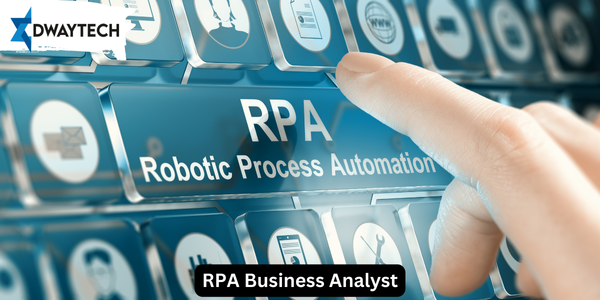In today’s competitive business landscape, automation is key to efficiency and growth. The RPA (Robotic Process Automation) Business Analyst is a crucial player in driving automation within organizations. This role bridges the gap between business needs and robotic process automation solutions, ensuring that automation aligns with business goals.
Let’s explore the responsibilities, skills, and impact of an RPA Business Analyst, and address some frequently asked questions about this vital role.
The Role of an RPA Business Analyst
An RPA Business Analyst is responsible for analyzing business processes and identifying opportunities for automation using RPA technology. They work closely with stakeholders to understand business requirements and translate them into automated processes. This involves:
- Requirements Gathering: Engaging with stakeholders to gather detailed business requirements for automation.
- Process Analysis: Evaluating existing business processes to identify areas suitable for RPA.
- Solution Design: Designing automated workflows that meet business needs and improve efficiency.
- Implementation Oversight: Collaborating with development teams to ensure successful implementation of RPA solutions.
- Change Management: Facilitating smooth transitions to automated processes and ensuring stakeholder buy-in.
Key Skills and Competencies
To excel as an RPA Business Analyst, one needs technical and soft skills. Here are some essential competencies:
1. Analytical Thinking
RPA Business Analysts must be able to dissect complex business processes and identify opportunities for automation. This requires critical thinking and a keen attention to detail.
2. Technical Proficiency
A solid understanding of RPA tools and technologies, such as UiPath, Blue Prism, or Automation Anywhere, is crucial. Familiarity with programming languages and workflow design is also beneficial.
3. Communication Skills
Effective communication is vital. Analysts need to convey technical information to non-technical stakeholders and gather detailed requirements.
4. Project Management
Strong project management skills ensure that RPA projects are completed on time and within budget. This covers risk management, resource allocation, and planning.
5. Business Acumen
Understanding the broader business context and industry trends helps RPA Business Analysts propose automation solutions that align with strategic goals.
Read More: Business Analyst Roles and Responsibilities
The Impact of an RPA Business Analyst
The contributions of an RPA Business Analyst can significantly impact a business. Automating repetitive and time-consuming tasks helps to reduce costs, improve efficiency, and free up employees to focus on higher-value activities. Additionally, they play a critical role in digital transformation initiatives, enabling businesses to leverage automation and stay competitive.
Conclusion
The role of an RPA Business Analyst is both dynamic and critical in today’s business environment. By identifying and implementing RPA solutions, they help organizations optimize processes, reduce costs, and drive innovation. Their ability to analyze, design, and oversee automation projects not only enhances business efficiency but also supports digital transformation efforts.
If you’re considering a career as an RPA Business Analyst, developing a strong foundation in both business and technology, along with excellent communication and analytical skills, will be essential to your success.
FAQs
1. What is the difference between a Business Analyst and an RPA Business Analyst?
While both roles involve analyzing business needs and proposing solutions, an RPA Business Analyst specifically focuses on identifying opportunities for automation and designing RPA solutions. They require a deeper understanding of RPA technologies and how they can be applied to business processes.
2. What qualifications are needed to become an RPA Business Analyst?
Usually, one needs a bachelor’s degree in business administration, computer science, information technology, or a similar discipline. Many RPA Business Analysts also pursue certifications in RPA tools, such as UiPath Advanced RPA Developer or Blue Prism Developer, to enhance their credentials.
3. What industries employ RPA Business Analysts?
RPA Business Analysts are employed across a wide range of industries, including finance, healthcare, retail, manufacturing, and government. Any sector that can benefit from automating repetitive tasks can utilize its expertise.
4. What are some common challenges faced by RPA Business Analysts?
Common challenges include managing stakeholder expectations, dealing with process complexities, ensuring the scalability of RPA solutions, and staying updated with the latest RPA advancements. Effective problem-solving and adaptability are key to overcoming these challenges.
Also, Useful links:
Business Analyst Training Course Online Request Demo











